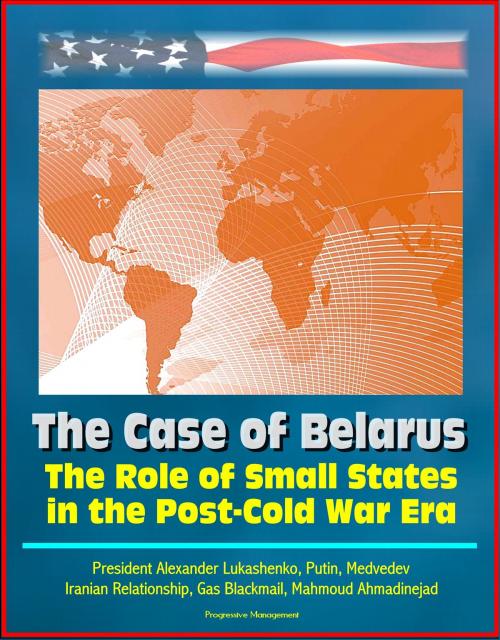The Role of Small States in the Post-Cold War Era: The Case of Belarus - President Alexander Lukashenko, Putin, Medvedev, Iranian Relationship, Gas Blackmail, Mahmoud Ahmadinejad
Nonfiction, Social & Cultural Studies, Political Science, Government, Communism & Socialism| Author: | Progressive Management | ISBN: | 9781301825417 |
| Publisher: | Progressive Management | Publication: | March 5, 2013 |
| Imprint: | Smashwords Edition | Language: | English |
| Author: | Progressive Management |
| ISBN: | 9781301825417 |
| Publisher: | Progressive Management |
| Publication: | March 5, 2013 |
| Imprint: | Smashwords Edition |
| Language: | English |
During the Cold War era, most states had gravitated to either one of the superpowers, the United States or the Union of Soviet Socialist Republics (USSR). There were, of course, states that tried to play the independent or semi-independent role. Still, they usually were not challenging to one of the superpowers.
Upon the collapse of the USSR, the United States had enjoyed absolute predominance until approximately the end of the Bush era, when a multipolar world started to develop. At that point, several centers of power emerged, providing the flexibility for small powers to move from the orbit of one center of power to the other. Moreover, the small powers could on occasion even challenge the bigger centers of power.
This is the case with Belarus, at least from 2006 to the present. Belarus officially became an ally of Russia and formed a "union" state. Still, since 2006, Minsk's relationship with Moscow became extremely acrimonious, when Moscow abruptly increased the price of oil/gas delivered to Minsk. Minsk engaged in conflict with Moscow—a conflict that has been mixed with a peculiar detente and new tensions. The conflict with Russia coincided with the flirting by Belarus with the European Union (EU) and, even more so, with China and Iran. All of this indicated that Belarus would continue to exercise a "multi-vector" foreign policy, and this Belarusian policy reflects the general pattern of foreign policy in an emerging multipolar world.
The absence of a single center of power or a few centers of power—as was the case during the Cold War—provides the opportunity even for small states, sandwiched between much stronger states, to move with comparative ease from one center to the other. Even when small states become finally attached to one of these centers, their attachment is not absolute, and freedom of action is still preserved.
During the Cold War era, most states had gravitated to either one of the superpowers, the United States or the Union of Soviet Socialist Republics (USSR). There were, of course, states that tried to play the independent or semi-independent role. Still, they usually were not challenging to one of the superpowers.
Upon the collapse of the USSR, the United States had enjoyed absolute predominance until approximately the end of the Bush era, when a multipolar world started to develop. At that point, several centers of power emerged, providing the flexibility for small powers to move from the orbit of one center of power to the other. Moreover, the small powers could on occasion even challenge the bigger centers of power.
This is the case with Belarus, at least from 2006 to the present. Belarus officially became an ally of Russia and formed a "union" state. Still, since 2006, Minsk's relationship with Moscow became extremely acrimonious, when Moscow abruptly increased the price of oil/gas delivered to Minsk. Minsk engaged in conflict with Moscow—a conflict that has been mixed with a peculiar detente and new tensions. The conflict with Russia coincided with the flirting by Belarus with the European Union (EU) and, even more so, with China and Iran. All of this indicated that Belarus would continue to exercise a "multi-vector" foreign policy, and this Belarusian policy reflects the general pattern of foreign policy in an emerging multipolar world.
The absence of a single center of power or a few centers of power—as was the case during the Cold War—provides the opportunity even for small states, sandwiched between much stronger states, to move with comparative ease from one center to the other. Even when small states become finally attached to one of these centers, their attachment is not absolute, and freedom of action is still preserved.















